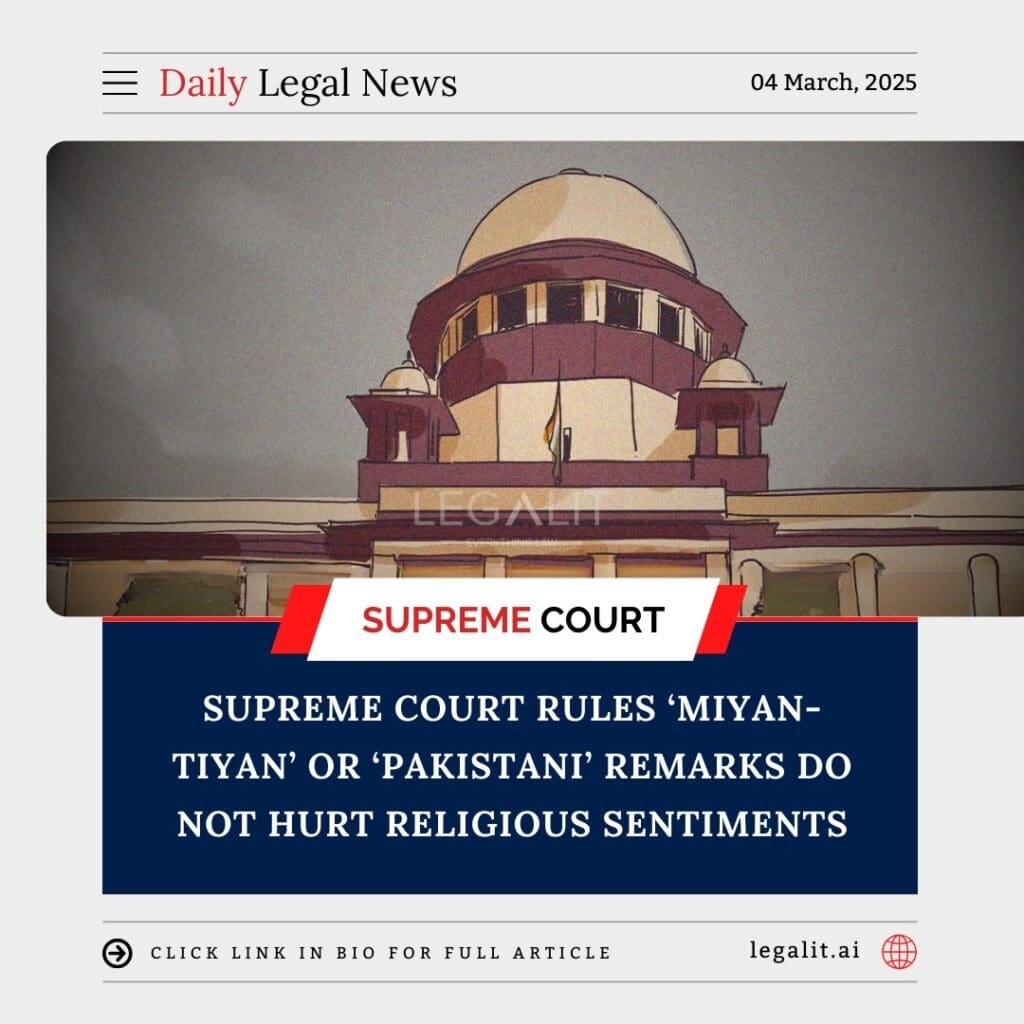
Background
The Supreme Court has held that calling someone “Miyan-Tiyan” or “Pakistani” does not amount to an offense under laws protecting religious sentiments. The ruling came in response to a petition challenging remarks made in a public setting, alleging that such language was intended to incite religious discord and communal disharmony. The complainant argued that these terms were derogatory and used to target specific religious communities, violating provisions of the Indian Penal Code (IPC) meant to prevent religious hatred.
The case was closely watched due to its implications for free speech, political rhetoric, and communal harmony. With rising instances of complaints under Section 295A of the IPC— a provision that criminalizes deliberate and malicious acts intended to outrage religious sentiments— the Supreme Court’s decision aimed to clarify the boundaries between offensive speech and legally punishable acts.
Court’s Rationale
The Supreme Court bench analyzed the context in which the remarks were made and ruled that they did not constitute a deliberate attempt to insult or incite violence against a religious group. The court emphasized that while the remarks might be insensitive, offensive, or politically charged, they do not fulfill the legal criteria for prosecuting someone under Section 295A of the IPC.
The court noted that:
- The phrase “Miyan-Tiyan” has been used colloquially in several parts of India and, in many cases, does not have a direct religious connotation.
- Calling someone “Pakistani” in a political or ideological debate does not automatically amount to a criminal offense unless it is accompanied by an explicit intent to incite violence or hatred.
- The Constitution protects free speech under Article 19(1)(a), and only speech that incites violence, hatred, or public disorder can be legally restricted.
The judges reiterated that courts must assess both intent and context before determining whether speech is criminally culpable. They warned against the misuse of laws meant to protect religious sentiments, stating that excessive criminalization of speech could lead to a chilling effect on public discourse.
Existing Measures
India has strict legal provisions to curb hate speech and religiously offensive content. Section 295A of the IPC is one of the most commonly invoked laws, penalizing deliberate insults to religious beliefs. Additionally:
- Section 153A of the IPC criminalizes speech that promotes enmity between different religious or social groups.
- The Supreme Court has laid down guidelines to prevent arbitrary misuse of these provisions, ensuring that only cases with a clear intent to incite hatred are prosecuted.
- Various High Court judgments have stressed the need for judicial scrutiny before registering cases under these provisions.
Conclusion
With this ruling, the Supreme Court has drawn a clear line between offensive but legally permissible speech and speech that is punishable under the law. It reinforces the principle that laws against religious offenses should not be misused to suppress free speech or political expression. The judgment serves as a crucial precedent, ensuring that the criminal justice system is not weaponized to silence individuals over politically charged remarks unless there is a direct and clear violation of the law.